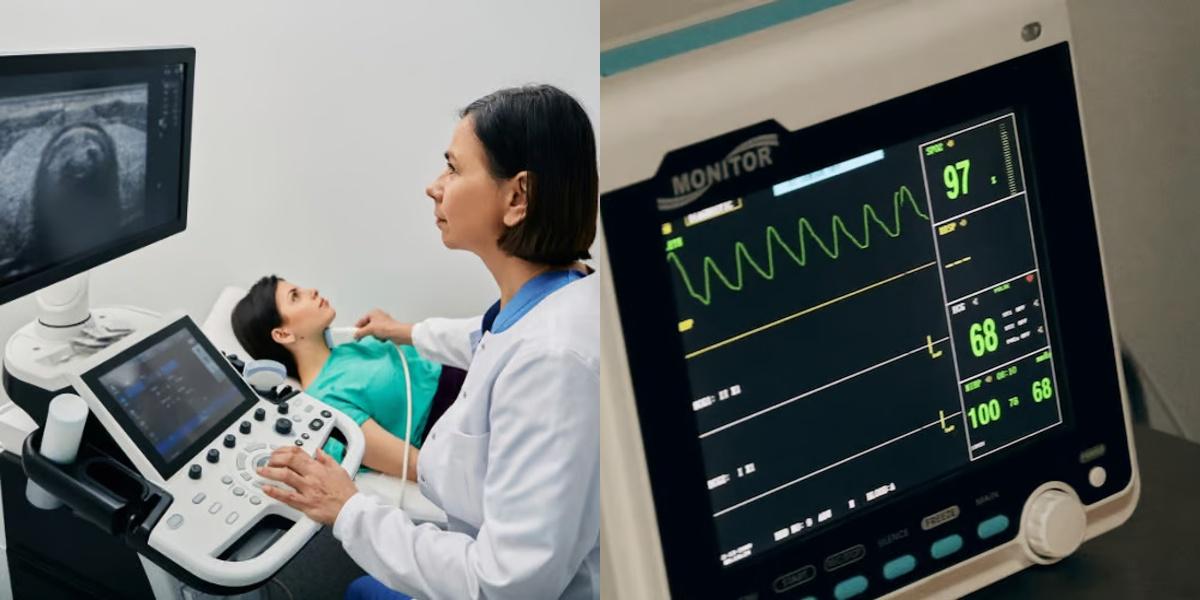Diagnostic Medical Sonographer vs EKG

Key Points:
- Diagnostic Medical Sonographers use imaging equipment to create images of the body, while EKG Technicians perform tests to measure the electrical activity of the heart.
- Diagnostic Medical Sonographers typically earn higher salaries than EKG Technicians.
- Both fields are expected to see growth in job openings.
- Diagnostic Medical Sonographers require formal training and certification, while EKG Technicians may only need a certificate program or on-the-job training.
- Diagnostic Medical Sonography programs are generally more expensive and take longer to complete, often requiring an associate's or bachelor's degree, compared to the shorter certificate programs for EKG Technicians.
As the field of healthcare continues to grow and evolve, there are a wide variety of career paths to choose from. Two popular options are becoming a diagnostic medical sonographer or an electrocardiogram (EKG) technician. Both of these careers involve the use of medical imaging technology, but there are some important differences between them. In this blog post, we will explore the roles and responsibilities of a diagnostic medical sonographer and an EKG technician, as well as the education and training required for each. We will also discuss the career outlook and salary potential for both professions.
Diagnostic Medical Sonographer vs EKG: Career Outlook and Salary
The career outlook and salary potential for diagnostic medical sonographers and EKG technicians can vary based on factors such as location, experience, and specialization. Here is an overview of the career outlook and salary ranges for each profession:
Diagnostic Medical Sonographer:
- Career Outlook: According to the Bureau of Labor Statistics (BLS), employment of diagnostic medical sonographers is projected to grow 19 percent from 2020 to 2030, much faster than the average for all occupations. This growth is attributed to the increasing demand for medical imaging services as the population ages.
- Salary: The median annual wage for diagnostic medical sonographers was $75,920 in May 2020, according to the BLS. The highest 10 percent earned more than $105,340, while the lowest 10 percent earned less than $53,790.
EKG Technician:
- Career Outlook: The career outlook for EKG technicians is also positive, with the BLS projecting a 5 percent growth in employment from 2020 to 2030. This growth is driven by an aging population and increased demand for cardiovascular testing.
- Salary: The median annual wage for cardiovascular technologists and technicians, including EKG technicians, was $59,410 in May 2020, according to the BLS. The highest 10 percent earned more than $93,100, while the lowest 10 percent earned less than $32,280.
Final Thoughts
Choosing a career in healthcare can be both rewarding and challenging. Both diagnostic medical sonographers and EKG technicians play important roles in diagnosing and monitoring medical conditions, but they have different areas of focus and responsibilities. It is important to carefully consider your interests, strengths, and career goals when deciding which path to pursue. Whether you choose to become a diagnostic medical sonographer or an EKG technician, both professions offer opportunities for personal and professional growth, as well as the chance to make a positive impact on patients' lives.
Dreambound's programs are available in different locations. Explore the following blogs for comprehensive details on these two vocations, including their requirements and guidelines on joining:

Harold Roldan is a Growth team member at Dreambound. With a background in IT, he works with data and automation to improve team efficiency and workflows. He spends his free time playing musical instruments or studying data, computers, and technology.




